- Home
- Karen Kingsbury
The Red Gloves Collection
The Red Gloves Collection Read online
This book is a work of fiction. Names, characters, places, and incidents are the product of the author’s imagination or are used fictitiously. Any resemblance to actual events, locales, or persons, living or dead, is coincidental.
Compilation copyright © Karen Kingsbury 2006
Gideon’s Gift copyright © Karen Kingsbury 2002
Maggie’s Miracle copyright © Karen Kingsbury 2003
Sarah’s Song copyright © Karen Kingsbury 2004
Hannah’s Hope copyright © Karen Kingsbury 2005
The words to “Sarah’s Song” are copyrighted by Karen Kingsbury and are used by permission.
Scriptures are taken from the HOLY BIBLE: NEW INTERNATIONAL VERSION®. Copyright © 1973, 1978, 1984 by International Bible Society. Used by permission of Zondervan Publishing House. All rights reserved.
All rights reserved.
Warner Faith
Hachette Book Group
237 Park Avenue
New York, NY 10017
Visit our Web site at www.HachetteBookGroupUSA.com.
The Warner Faith name and the “W” logo are trademarks of Time Inc. Used under license.
First eBook Edition: October 2006
ISBN: 978-0-446-55324-7
Contents
GIDEON’S GIFT
PROLOGUE
CHAPTER ONE
CHAPTER TWO
CHAPTER THREE
CHAPTER FOUR
CHAPTER FIVE
CHAPTER SIX
CHAPTER SEVEN
CHAPTER EIGHT
CHAPTER NINE
CHAPTER TEN
CHAPTER ELEVEN
CHAPTER TWELVE
POSTSCRIPT
MAGGIE’S MIRACLE
PROLOGUE
CHAPTER ONE
CHAPTER TWO
CHAPTER THREE
CHAPTER FOUR
CHAPTER FIVE
CHAPTER SIX
CHAPTER SEVEN
CHAPTER EIGHT
CHAPTER NINE
CHAPTER TEN
CHAPTER ELEVEN
CHAPTER TWELVE
EPILOGUE
SARAH’S SONG
SARAH’S SONG
PROLOGUE
CHAPTER ONE
CHAPTER TWO
CHAPTER THREE
CHAPTER FOUR
CHAPTER FIVE
CHAPTER SIX
CHAPTER SEVEN
CHAPTER EIGHT
CHAPTER NINE
CHAPTER TEN
CHAPTER ELEVEN
CHAPTER TWELVE
EPILOGUE
HANNAH’S HOPE
PROLOGUE
CHAPTER ONE
CHAPTER TWO
CHAPTER THREE
CHAPTER FOUR
CHAPTER FIVE
CHAPTER SIX
CHAPTER SEVEN
CHAPTER EIGHT
CHAPTER NINE
CHAPTER TEN
CHAPTER ELEVEN
CHAPTER TWELVE
EPILOGUE
ACKNOWLEDGMENTS
AUTHOR’S NOTE
Praise for THE RED GLOVES SERIES
On GIDEON:
“This may be a small book, but there is nothing little about its message of hope and the miraculous. Give yourself a gift. Read GIDEON’S GIFT.”
—Robin Lee Hatcher, author of Firstborn
“GIDEON’S GIFT is fabulous! It’s a perfect book for the whole family.”
—June Cotner, author of Christmas Blessings
“Heartrending and gentle … This second chance for two souls will give you goose bumps. Karen Kingsbury delivers!”
—Deborah Bedford, author of A Morning Like This
On MAGGIE:
“To call Karen Kingsbury an author is a disservice. She is an artist, and MAGGIE’S MIRACLE is yet another breathtaking masterpiece. When I finished the last page, I could only shake my head in wonder.”
—Mark Atteberry, author of The Samson Syndrome
“I loved this book! Karen has a gift for writing an appealing, sweet story that captures the reader’s heart. It increased my faith and reminded me that God is in control!”
—Margaret Maxwell, wife of bestselling author John C. Maxwell
“Karen Kingsbury is a great fiction writer and an even better person. Wait until you read MAGGIE’S MIRACLE! You will be deeply touched.”
—Pat Williams, Sr. Vice President, Orlando Magic
“Karen never ceases to brilliantly move her readers with heartfelt stories—MAGGIE’S MIRACLE is no exception.”
—Dr. Gary Smalley, founder of Smalley Relationship Center
“MAGGIE’S MIRACLE is a delightful Christmas story that warms the heart and brings the availability of miracles to happen in our own lives. It is an easy-reading book; in fact, I couldn’t put it down until I had finished reading it.”
—Anna M. Hayford, wife of Dr. Jack Hayford, chancellor, King’s Seminary
On SARAH:
“Carve one hour out of this busy holiday season and curl up by the fire with SARAH’S SONG. You’ll be deeply touched, even moved to tears, by this simple, gentle story of an older woman’s memories and a younger woman’s heartache. As they count the days until Christmas, both women’s lives are changed forever. May your life be changed as well!
—Liz Curtis Higgs, bestselling author of Thorn in My Heart
“SARAH’S SONG is sure to touch the heart of the reader. Karen Kingsbury has crafted another moving story of God’s hope and restoration. This isn’t to be missed!”
—Tracie Peterson, bestselling author of Silent Star and Eyes of the Heart
“Kingsbury can touch the heart like no other author. SARAH’S SONG made me treasure the gifts of love in my own life. This tender story is sure to be a Christmas favorite year after year.”
—Colleen Coble, author ofWithout a Trace and Beyond a Doubt
On HANNAH:
“The newest Red Gloves Christmas novella by Karen Kingsbury has become part of my Christmas tradition over the last three years, along with Gideon’s Gift, Maggies Miracle, and Sarah’s Song. In HANNAH’S HOPE, Kingsbury raises her own bar of excellence. Truly touching, a wonderful cast of characters, and a tribute to the members of the armed forces serving in Iraq and Afghanistan. Thanks, Karen, for touching my heart and for once more making the true Spirit of Christmas come alive in me.”
—Tracey Bateman, author of The Claire Everett Series
GIDEON’S GIFT
To my parents, Anne and Ted Kingsbury, on the celebration of their fortieth wedding anniversary. Thank you for defining that elusive, “forever” kind of love the world needs so badly. You have been and continue to be an inspiration to each of us five kids, and to our families.
And a special thanks to Dad for creating a rich and poignant memory for me when I was a little girl, something I have never forgotten—something that inspired the writing of Gideon’s Gift. The memory goes something like this:
It is Thanksgiving and after the meal you heap leftovers on a sturdy paper plate. We pile into the van and drive around until you find one of the local street people. With tears in your eyes, you step out of the car and hand over the food. “Happy Thanksgiving,” you say, your voice choked.
When you climb back behind the wheel, you look at Mom and shrug, your chin quivering. And then you say it, the thing you say still today:
“There, but for the grace of God, go I.”
PROLOGUE
The gift that changed them all had led to this: a Christmas wedding.
Nothing could have been more appropriate. Gideon was an angel, after all. Not the haloed, holy kind. But the type that once in a while—when the chance presented itself—made you stare a little harder at her upper back. I
n case she was sprouting wings.
From his seat in the back of the church, Earl Bad-gett’s tired old eyes grew moist. A Christmas wedding was the only kind for Gideon. Because if ever angels shone it was in December. This was the season when Gideon’s gift had mattered most.
Gideon’s gift.
A million memories called to him. Had it been thirteen years? Earl stared at the vision she made, surrounded by white satin and lace. The greatest miracle was that Gideon had survived.
He brushed the back of his hand over his damp cheeks. She actually survived.
But that wasn’t the only miracle.
Earl watched Gideon smile at her father—the glowing, unforgettable smile of a young woman on the brink of becoming. The two of them linked arms and began a graceful walk down the aisle. It was a simple wedding, really. A church full of family and friends, there to witness a most tender moment for a girl who deserved it more than any other. A girl whose love, whose very presence, lit the room and caused people to feel grateful for one reason alone: They had been given the privilege of knowing Gideon Mercer. God had lent her a little while longer to the mere mortals who made up her world. And in that they were all blessed.
Gideon and her father were halfway down the aisle when it happened. Gideon hesitated, glanced over her shoulder, and found Earl. Her eyes had that haunting look that spoke straight to his soul, the same as they always had. They shared the briefest smile, a smile that told him he wasn’t the only one. She, too, was remembering the miracle of that Christmas.
The corners of Earl’s mouth worked their way up his worn face. You did it, angel. You got jour dream. His heart danced with joy. It was all he could do to stay seated, when everything in him wanted to stand and cheer.
Go get ‘em, Gideon!
As they rarely did anymore, the memories came like long lost friends. Filling Earl’s mind, flooding his senses, linking hands with his heart and leading him back. Back thirteen years to that wondrous time when heaven orchestrated an event no less miraculous than Christmas itself. An event that changed both their lives.
An event that saved them.
Time flew … back to the winter when Earl first met Gideon Mercer.
CHAPTER ONE
The red gloves were all that mattered.
If living on the streets of Portland was a prison, the red gloves were the key. The key that—for a few brief hours—set him free from the lingering stench and hopeless isolation, free from the relentless rain and the tarp-covered shanty.
The key that freed him to relive the life he’d once had. A life he could never have again.
Something about the red gloves took him back and made it all real—their voices, their touch, their warmth as they sat with him around the dinner table each night. Their love. It was as though he’d never lost a bit of it.
As long as he wore the gloves.
Otherwise, the prison would have been unbearable. Because the truth was Earl had lost everything. His life, his hope, his will to live. But when he slipped on the gloves … Ah, when he felt the finely knit wool surround his fingers, Earl still had the one thing that mattered. He still had a family. If only for a few dark hours.
It was the first of November, and the gloves were put away, hidden in the lining of his damp parka. Earl never wore them until after dinner, when he was tucked beneath his plastic roof, anxious to rid himself of another day. He would’ve loved to wear them all the time, but he didn’t dare. They were nice gloves. Handmade. The kind most street people would snatch from a corpse.
Dead or alive, Earl had no intention of losing them.
He shuffled along Martin Luther King Boulevard, staring at the faces that sped past him. He was invisible to them. Completely invisible. He’d figured that much out his first year on the streets. Oh, once in a while ^they’d toss him a quarter or shout at him: “Get a job, old man!” or “Go back to California!”
But mostly they just ignored him.
The people who passed him were still in the race, still making decisions and meeting deadlines, still believing it could never happen to them. They carried themselves with a sense of self-reliance—a certainty that they were somehow better than him. For most of them, Earl was little more than a nuisance. An unsightly blemish on the streets of their nice city.
Rain began to fall. Small, icy droplets found their way through his hooded parka and danced across his balding head. He didn’t mind. He was used to the rain; it fit his mood. The longer he was on the street the more true that became.
He moved along.
“Big Earl!”
The slurred words carried over the traffic. Earl looked up. A black man was weaving along the opposite sidewalk, shouting and waving a bottle of Crown Royal. He was headed for the same place as Earl: the mission.
Rain or shine, there were meals at the mission. All the street people knew it. Earl had seen the black man there a hundred times before, but he couldn’t remember his name. Couldn’t remember most of their names. They didn’t matter to him. Nothing did. Nothing except the red gloves.
The black man waved the bottle again and shot him a toothless grin. “God loves ya, Big Earl!”
Earl looked away. “Leave me alone,” he muttered, and pulled his parka tighter around his neck and face. The mission director had given him the coat two years ago. It had served its purpose. The dark-green nylon was brown now, putrid-smelling and sticky with dirt. Earl’s whiskers caught in the fibers and made his face itch.
He couldn’t remember the last time he’d shaved.
Across the street the black man gave up. He raised his bottle to a group of three animated women with fancy clothes and new umbrellas. “Dinner bell’s a callin’ me home, ladies!”
The women stopped chatting and formed a tight, nervous cluster. They squeezed by the man, creating as much distance between them as they could. After they’d passed, the black man raised his bottle again. “God loves ya!”
The mission was two blocks up on the right. Behind him, Earl could hear the black man singing, his words running together like gutter water. Earl’s cool response hadn’t bothered him at all.
“Amazing grace, how sweet da sound … ”
Earl narrowed his gaze. Street people wore thick skins. Layers, Earl called it—years of living so far deep inside yourself, nothing could really touch you. Not the weather, not the nervous stares from passersby, not the callous comments from the occasional motorist.
And certainly not anything another street person might say or do.
The mission doors were open. A hapless stream of people mingled among the regulars. Earl rolled his eyes and stared at his boots. When temperatures dropped below fifty, indigents flooded the place. The regulars could barely get a table.
He squeezed his way past the milling newcomers, all of them trying to figure out where the line started and the quickest way to get a hot plate. Up ahead were two empty-eyed drifters—young guys with long hair and years of drug use written on their faces. Earl slid between them, grabbed a plate of food, and headed for his table, a forgotten two-seater off by itself in the far corner of the room.
“Hey, Earl.”
He looked up and saw D.J. Grange, mission director for the past decade. The man was bundled in his red-plaid jacket, same as always. His eyes were blue. Too blue. And piercing. As though he could see things Earl didn’t tell anyone. D.J. was always talking God this and God that. It was amazing, really. After all these years, D.J. still didn’t get it.
Earl looked back down at his plate. “I don’t come for a sermon. You know that,” he mumbled into his instant mashed potatoes.
“We got people praying, Earl.” D.J. gripped the nearest chair and leaned closer. Earl could feel the man’s smile without looking. “Any requests? Just between us?”
“Yes.” Earl set his fork down and shot D.J. the hardest look he could muster. “Leave me alone.”
“Fine.” D.J. grinned like a shopping-mall Santa Claus. “Let me know if you change your mind.” St
ill smiling, he moved on to the next table.
There was one other chair at Earl’s table, but no one took it. There was an unspoken code among street people—sober ones, anyway: “Eyes cast down, don’t come around.” Earl kept his eyes on his plate, and on this night the code worked. The others would, rather stand than share a meal with a man who needed his space.
Besides his appearance would easily detract even the most hardened street people. He didn’t look in the mirror often, but when he did, he understood why they kept their distance. It wasn’t his scraggly, gray hair or the foul-smelling parka. It was his eyes.
Cold, dead eyes.
The only time he figured his eyes might possibly show signs of life or loneliness was at night. When he wore the red gloves. But then, no one ever saw his eyes during those hours.
He finished his plate, pushed back from the table and headed for the exit. D.J. watched him go, standing guard at the front of the food line. “See you tomorrow, Earl.” He waved big. “I’ll be praying for you.”
Earl didn’t turn around. He walked hard and fast out the door into the dark, rainy night. It was colder than before. It worried him a little. Some years, when the first cold night had hit, another street person had swiped his bed or taken off with his tarp. His current tarp hung like a curtain across the outside wall of his home. It was easily the most important part of his physical survival. Small wonder they were taken so often.
He narrowed his eyes and picked up his pace. His back hurt and he felt more miserable than usual. He was anxious for sleep, anxious to shut out the world and everything bad about it.
Anxious for the red gloves.
He’d spent this day like every other day, wandering the alleyways and staring at his feet. He always took his meals at the mission and waited. For sundown, for sleep, for death. Years ago, when he’d first hit the streets, his emotions had been closer to the surface. Sorrow and grief and guilt, fear and loneliness and anxiety. Hourly these would seize him, strangling his battered heart like a vice grip.
But each day on the streets had built in him another layer, separating him from everything he’d ever felt, everything about the man he used to be and the life he used to lead. His emotions were buried deep now, and Earl was sure they’d never surface again. He was a shell—a meaningless, unfeeling shell.

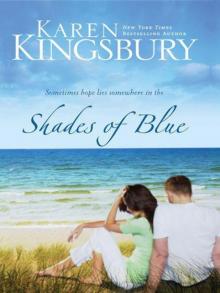 Shades of Blue
Shades of Blue Divine
Divine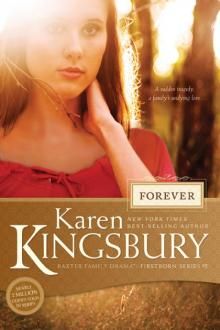 Forever
Forever Summer
Summer The Snake and the Spider
The Snake and the Spider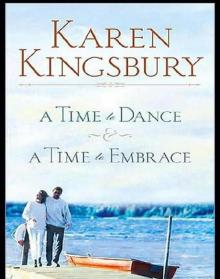 A Time to Dance
A Time to Dance Remember Tuesday Morning
Remember Tuesday Morning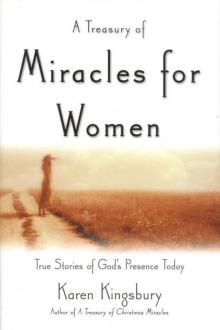 A Treasury of Miracles for Women
A Treasury of Miracles for Women Like Dandelion Dust
Like Dandelion Dust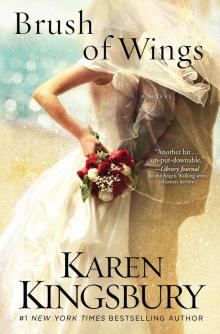 Brush of Wings
Brush of Wings The Tuesday Morning Collection
The Tuesday Morning Collection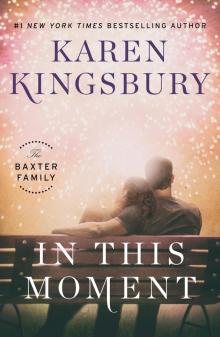 A Moment of Weakness
A Moment of Weakness Ever After
Ever After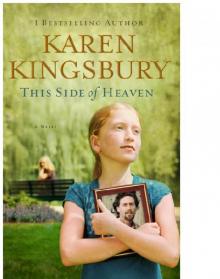 This Side of Heaven
This Side of Heaven Unlocked: A Love Story
Unlocked: A Love Story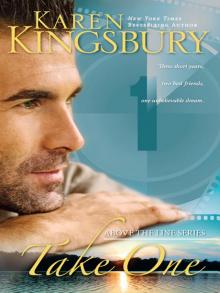 Take One
Take One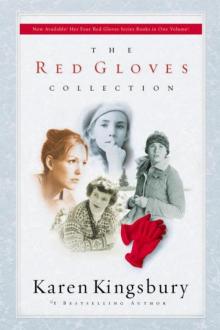 The Red Gloves Collection
The Red Gloves Collection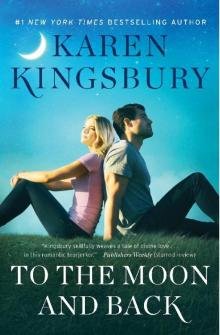 To the Moon and Back
To the Moon and Back Just Beyond the Clouds
Just Beyond the Clouds Oceans Apart
Oceans Apart A Baxter Family Christmas
A Baxter Family Christmas Fame
Fame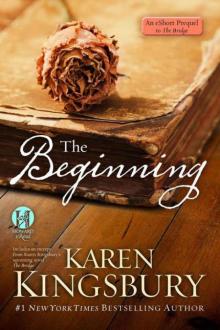 The Beginning
The Beginning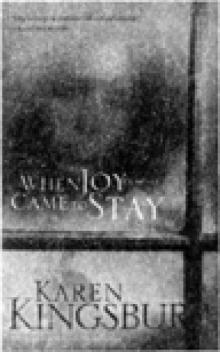 On Every Side
On Every Side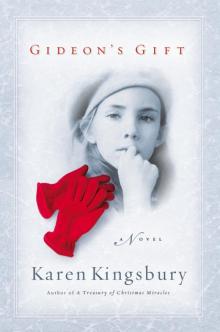 Gideon's Gift
Gideon's Gift Forgiven
Forgiven A Kingsbury Collection
A Kingsbury Collection Found
Found Family
Family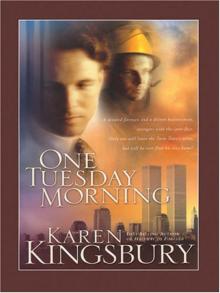 One Tuesday Morning
One Tuesday Morning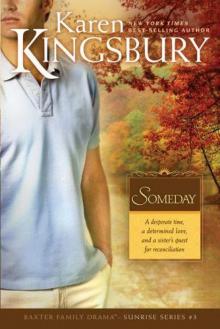 Someday
Someday Take Three
Take Three Beyond Tuesday Morning
Beyond Tuesday Morning Unlocked
Unlocked Take Four
Take Four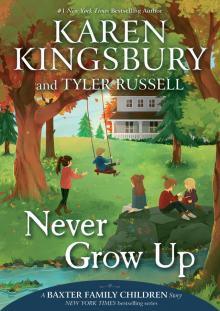 Never Grow Up
Never Grow Up Where Yesterday Lives
Where Yesterday Lives Two Weeks
Two Weeks When Joy Came to Stay
When Joy Came to Stay Halfway to Forever
Halfway to Forever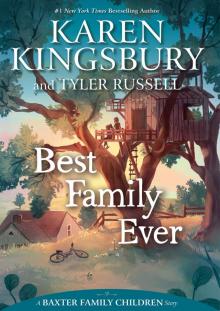 Best Family Ever
Best Family Ever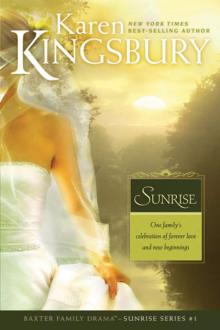 Sunrise
Sunrise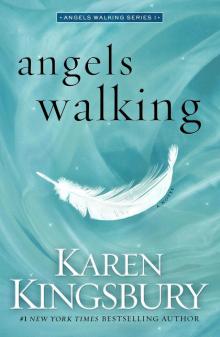 Angels Walking
Angels Walking A Treasury of Miracles for Friends
A Treasury of Miracles for Friends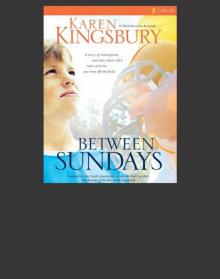 Between Sundays
Between Sundays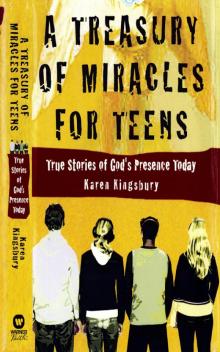 A Treasury of Miracles for Teens
A Treasury of Miracles for Teens A Thousand Tomorrows / Just Beyond the Clouds
A Thousand Tomorrows / Just Beyond the Clouds Finding Home (A Baxter Family Children Story Book 2)
Finding Home (A Baxter Family Children Story Book 2)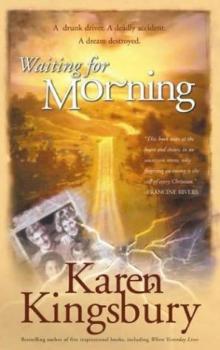 Waiting for Morning
Waiting for Morning Chasing Sunsets
Chasing Sunsets Two Weeks: A Novel (The Baxter Family)
Two Weeks: A Novel (The Baxter Family) Coming Home
Coming Home Final Vows
Final Vows Sunset
Sunset Even Now
Even Now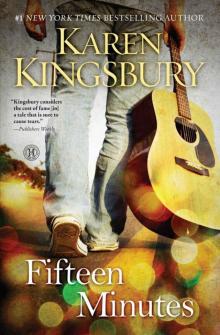 Fifteen Minutes: A Novel
Fifteen Minutes: A Novel Love Story
Love Story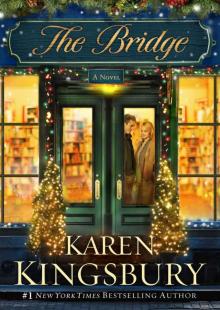 The Bridge: A Novel
The Bridge: A Novel One Tuesday Morning & Beyond Tuesday Morning Compilation
One Tuesday Morning & Beyond Tuesday Morning Compilation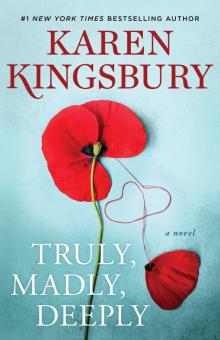 Truly, Madly, Deeply
Truly, Madly, Deeply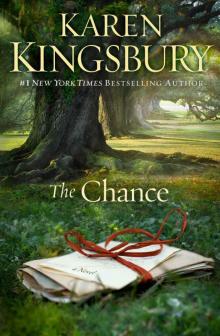 The Chance: A Novel
The Chance: A Novel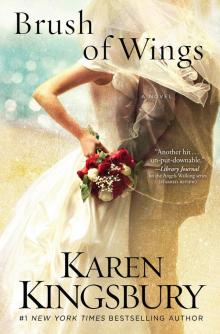 A Brush of Wings
A Brush of Wings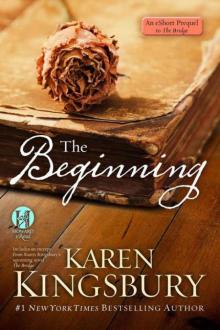 The Beginning: An eShort Prequel to the Bridge
The Beginning: An eShort Prequel to the Bridge A Thousand Tomorrows & Just Beyond The Clouds Omnibus
A Thousand Tomorrows & Just Beyond The Clouds Omnibus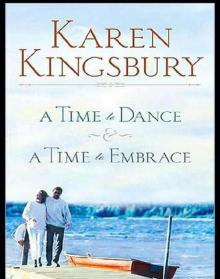 A Time to Dance/A Time to Embrace
A Time to Dance/A Time to Embrace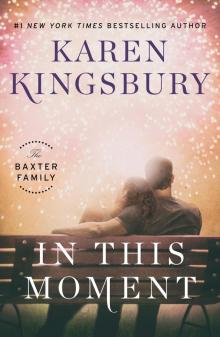 In This Moment
In This Moment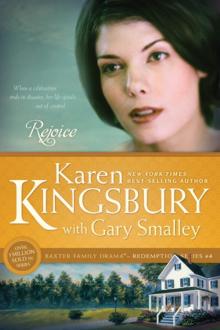 Rejoice
Rejoice Coming Home: A Story of Undying Hope
Coming Home: A Story of Undying Hope